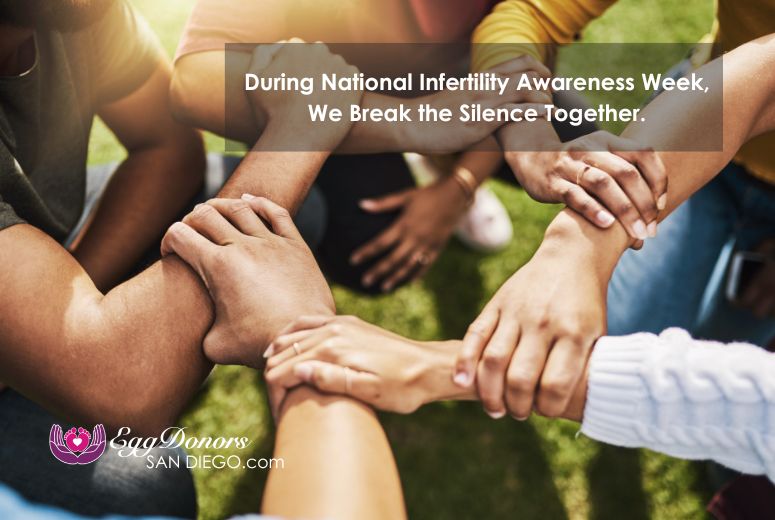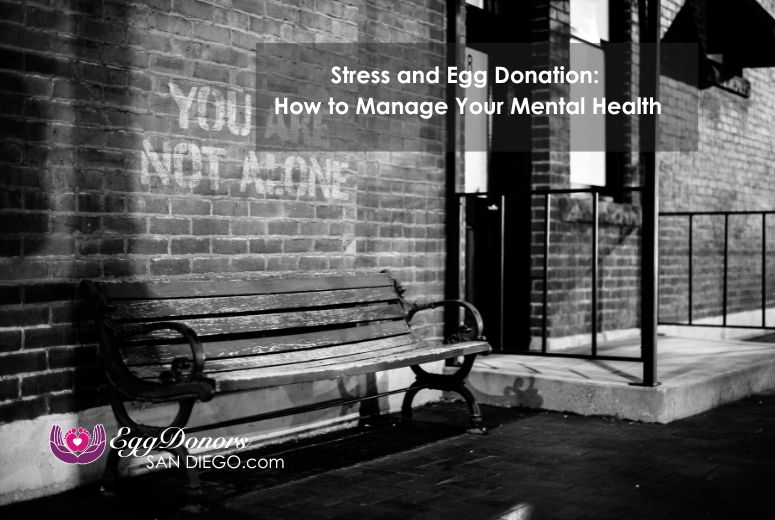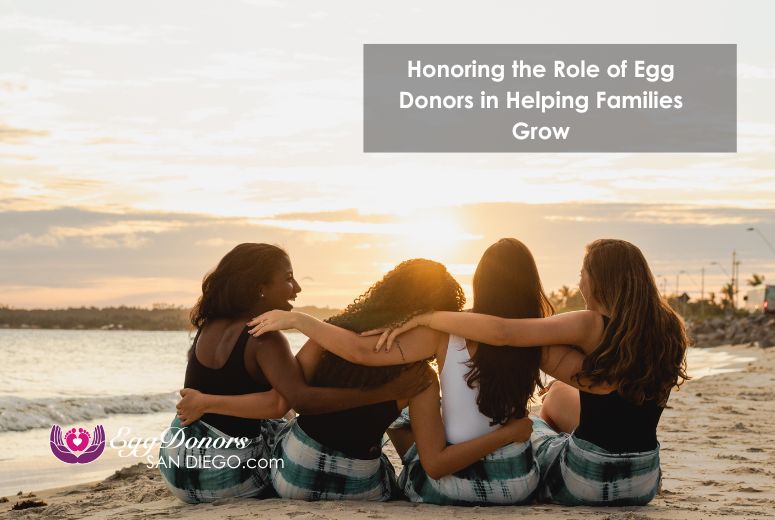Infertility often begins in silence. Behind closed doors and unspoken worries, individuals and couples navigate a whirlwind of hope, heartbreak, and uncertainty—frequently feeling like they are walking the path alone. But during National Infertility Awareness Week (NIAW) 2025, the message is clear: You are not alone.
Organized by RESOLVE: The National Infertility Association, NIAW provides a platform to elevate infertility awareness, dismantle stigma, and empower those experiencing the emotional side of infertility with knowledge, connection, and infertility support.
“Infertility is not just a medical diagnosis—it’s an emotional experience that affects every aspect of your life,” says Dr. Minoos Hosseinzadeh, Founder and Medical Director at EggDonorsSanDiego.com and Fertility Institute of San Diego. “Acknowledging the emotional impact is the first step to healing, and during NIAW, we encourage open dialogue, compassion, and shared understanding.”
Understanding the Emotional Side of Infertility
The infertility journey is deeply personal and frequently misunderstood. While reproductive medicine has made remarkable strides in infertility treatment options, it’s the emotional impact of infertility that often goes unspoken. Depression, anxiety, relationship strain, and social isolation are all common.
Couples may face tension in communication or feel distant from friends who conceive easily. Others may cycle through guilt, shame, or blame—hallmarks of infertility stigma that can erode mental health and self-worth.
“Patients tell me it’s not the injections or appointments that feel the hardest—it’s the uncertainty. The waiting. The hope that builds and breaks,” shares Dr. Hosseinzadeh.
Recognizing this mental health and infertility connection is vital. Therapy, mindfulness practices, journaling, and community support can be powerful tools in coping with infertility.
Why National Infertility Awareness Week Matters
Held every April, National Infertility Awareness Week (April 20–26 in 2025) is more than a moment—it’s a movement. It challenges misconceptions, creates space for advocacy, and reminds those struggling that they’re part of an infertility community that understands.
This year’s theme, “You Are Not Alone,” aims to spotlight the shared reality of millions navigating fertility struggles, while uplifting voices too often left unheard.
As Dr. Hosseinzadeh emphasizes, “You deserve care that treats the whole person—not just the diagnosis. That’s what we strive for with our one-on-one, physician-led approach.”
Emotional and Psychological Symptoms to Watch for
Those experiencing infertility may encounter:
- Emotional withdrawal or numbness
- Increased irritability or sadness
- Anxiety around family events or social settings
- Disrupted sleep or eating patterns
- Feelings of inadequacy or diminished self-esteem
The stress and infertility cycle can be self-perpetuating. Psychological strain may impact hormonal balance, creating physiological effects that exacerbate fertility issues.
Risk Factors Contributing to Emotional Distress
Certain risk factors may heighten the emotional toll of infertility:
- Lengthy treatment timelines
- History of miscarriage or pregnancy loss
- Lack of partner or familial support
- Repeated IVF failures
- Financial pressures from ongoing treatment costs
Accessing infertility resources early—especially emotional support—can reduce long-term complications.
Breaking the Silence: Advocacy and Community
Whether it’s through speaking publicly, attending a local walk, or sharing your story online, breaking the silence about infertility helps combat stigma and strengthens advocacy efforts.
Support groups, either virtual or in-person, play a critical role in creating a safe space to connect. “When patients discover they’re not alone—when they hear someone else say ‘me too’—the weight lifts,” says Dr. Hosseinzadeh.
Navigating Relationships During Infertility
Infertility and relationships often face strain, especially when partners cope differently. One may seek logic and action, while the other retreats emotionally.
Tips to foster resilience:
- Communicate openly about fears and hopes
- Schedule “fertility-free” time to reconnect
- Consider joint therapy or counseling
- Practice empathy when responses differ
“Awareness is the antidote to isolation,” says Dr. Hosseinzadeh. “When we talk about infertility openly, we invite empathy—and open the door for others to step through with us.”
FAQ: Navigating the Emotional Side of Infertility
It’s an annual campaign aimed at raising infertility awareness, challenging stigma, and supporting those facing fertility challenges.
Infertility affects not just physical health, but identity, relationships, and hope. The uncertainty and emotional swings can take a serious toll on mental well-being.
Listen without offering advice, validate their emotions, and avoid platitudes like “just relax.” Presence is more powerful than perfect words.
Yes. Chronic stress can disrupt hormonal cycles and impact reproductive health. That’s why emotional support is a critical part of treatment.
If you’re feeling isolated in your infertility journey, please know: you are not alone. During NIAW and beyond, support is available—and healing is possible.
If you’re ready to take the next step, click here to schedule a complimentary virtual consultation with Dr. Minoos Hosseinzadeh. Personalized, compassionate care starts with a conversation.









